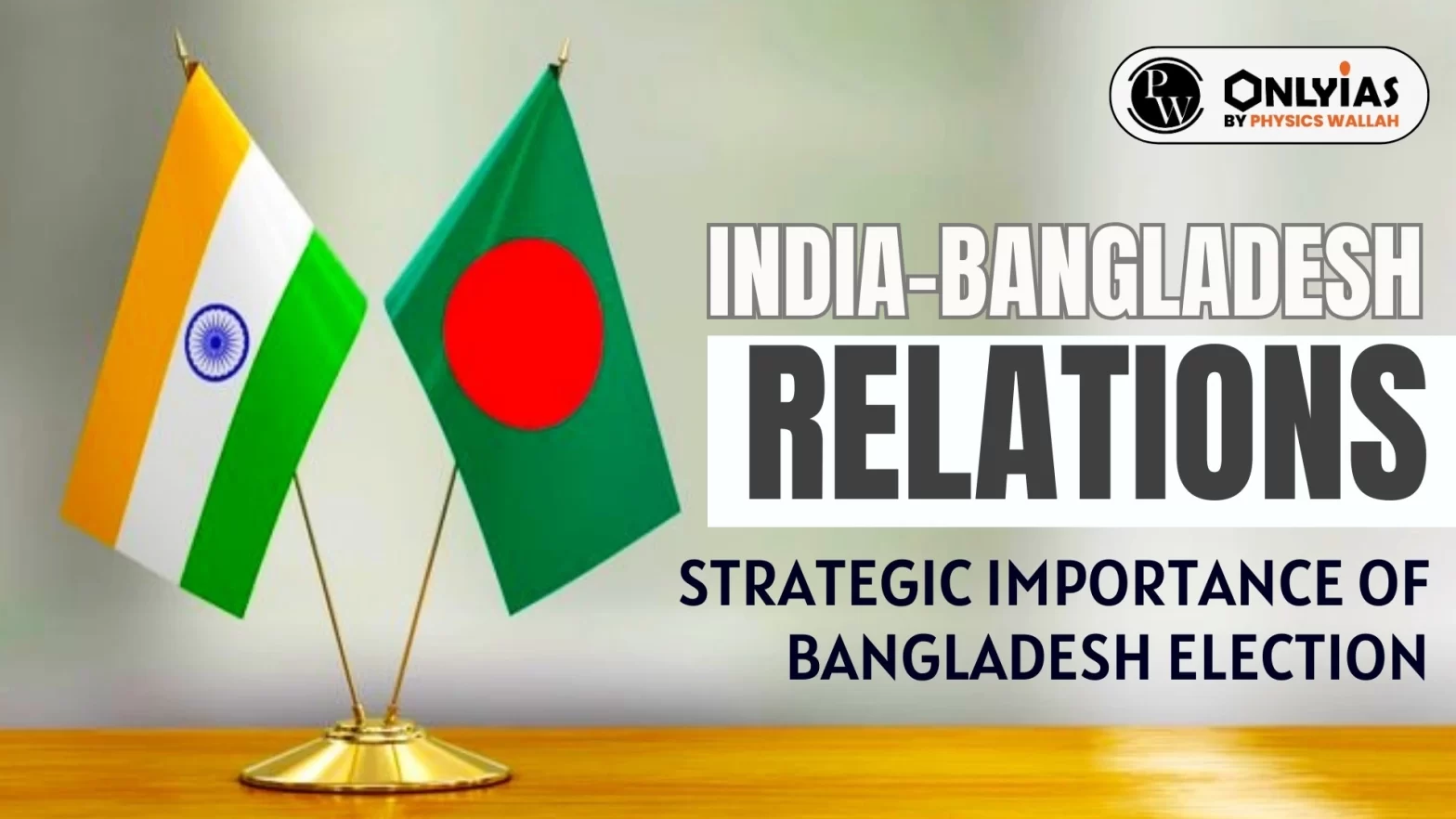![]() 8 Jan 2024
8 Jan 2024

Context: This editorial is based on the news “Bangladesh elections today: The significance for India, explained” which was published in the Indian Express. This article highlights why the polls in the neighborhood (Bangladesh) matter from a strategic and economic perspective for India.
| Relevancy for Prelims: India Vs Bangladesh, Ruling and Opposition Party in Bangladesh: Awami League (AL), and Bangladesh Nationalist Party (BNP) Alliance, and India’s Neighbourhood First policy, Relevancy for Mains: India-Bangladesh Relations– Challenges and the Way Forward. |
|---|
| Mains Question: Critically examine the compulsions which prompted India to play decisive roles in the emergence of Bangladesh. (15 marks, 250 words) |
|---|
|
Must Read |
|
| NCERT Notes For UPSC | UPSC Daily Current Affairs |
| UPSC Blogs | UPSC Daily Editorials |

<div class="new-fform">
</div>